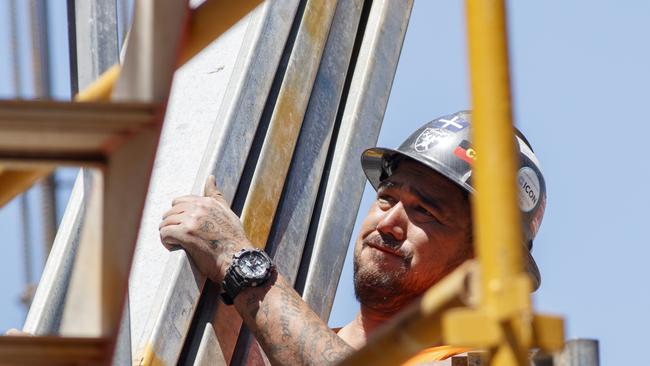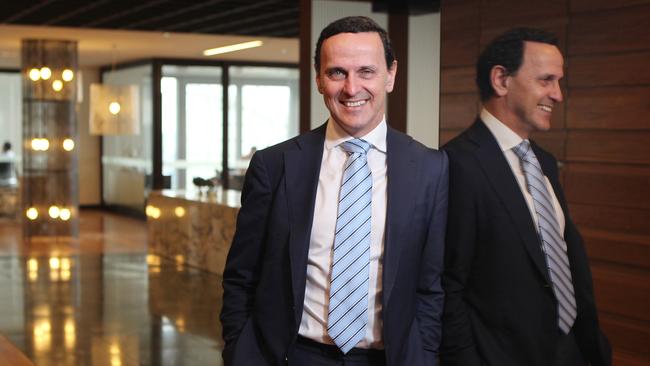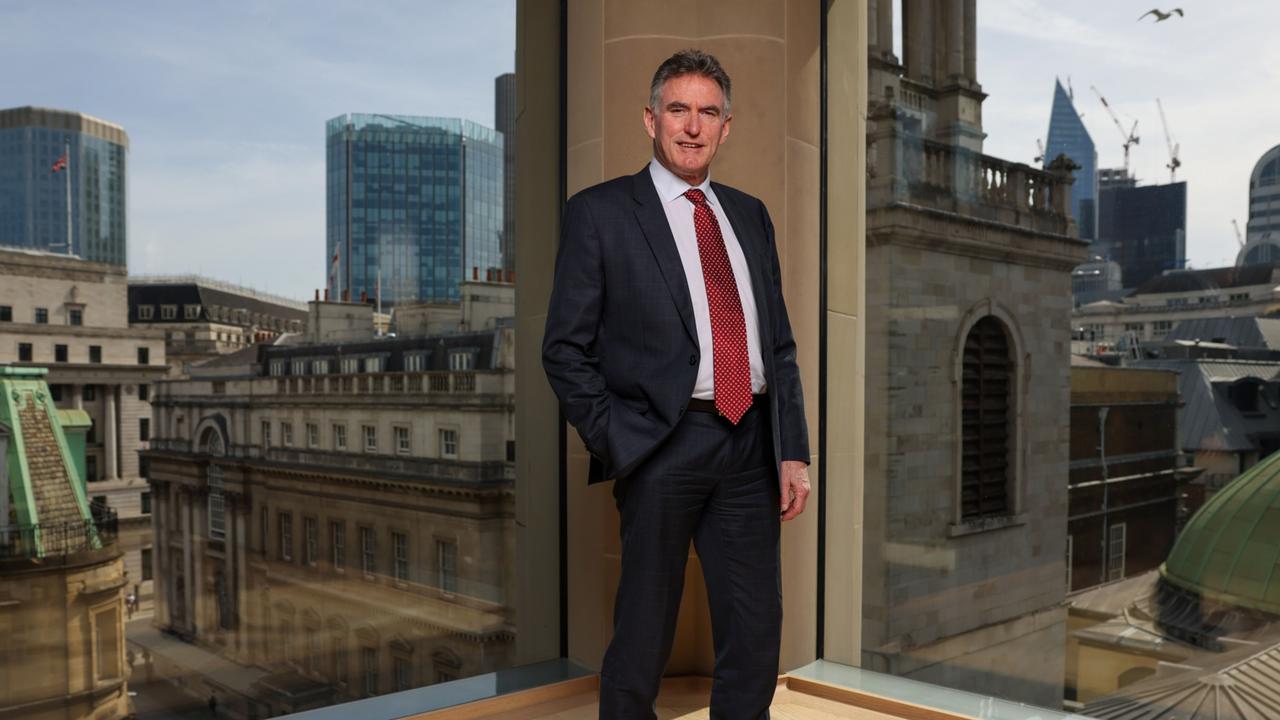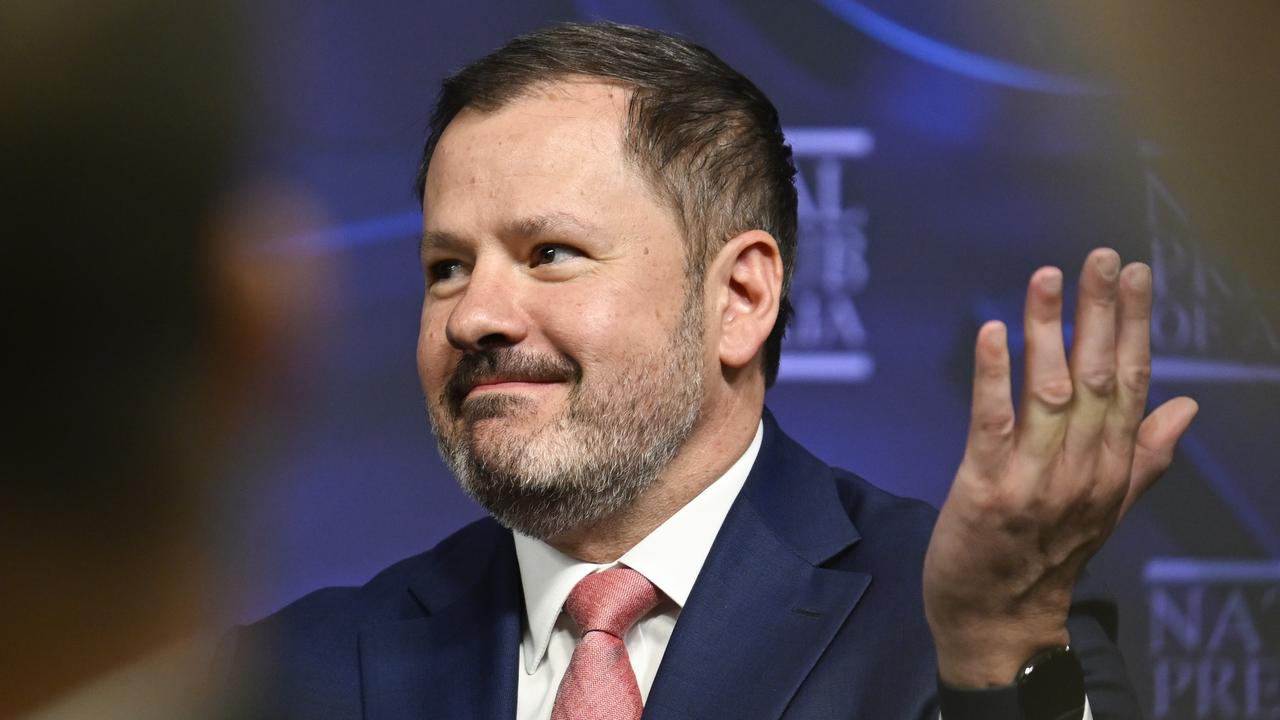
Canberra is crawling with big business leaders, with Treasurer Josh Frydenberg speaking at a BCA dinner on Tuesday night, followed by a Bankers Association dinner on Wednesday night.
The BCA hosts a breakfast on Wednesday morning with Anthony Albanese speaking as the opposition front bench hears from the business community.
The business meetings serve as a useful sounding ahead of the May budget, with Canberra getting a direct feed on how the real economy is travelling.
The short answer is better than expected, but then again expectations were rock bottom.
The good news is the government’s support packages have managed to get the economy through the pandemic — the bad news is even though the economy will get back to pre-COVID levels this quarter, that puts it in anaemic territory.
Management of the bounce back has been superbly marketed, backed by genuine relief from RBA governor Philip Lowe down, surprised at the bounce that followed what some saw as the best half-yearly profit season in the last 40 half years.
MST’s Hasan Tevfik said profit upgrades of 5 per cent compared to the more normal downgrades.
That’s great for the all-important confidence but doesn’t mean business is primed for an investment boom necessary to boost jobs and provide a platform for sustainable growth.
Consumers have led the way, with the $50bn a year normally spent on overseas holidays being spent around the home and the liquor cabinet.
At month’s end the handouts end.
One clear message from business will be a plea for the government to forget fiscal repair for the time being, with the recovery, as good as it might seem, not strong enough to cope with any hits.
Business spending in the fourth quarter last year was buoyed by car fleets, the retail sector is strong, as are house prices, and housing starts are above pre-COVID levels.
What is missing is sustainable long-term investment spending.
The latest NAB survey said business expectations were that capital expenditure would bounce back strongly for the fourth quarter of this calendar year.
These are just expectations.
It remains to be seen whether it happens and much depends on Frydenberg’s budget in May, with businesses hoping for positive support and more reasons to be confident.
The barrage of good economic news has the understandable benefit of helping to rebuild confidence, but the stark reality is this economy is a long way short of anything like sustainable growth.
That is the message RBA chief Lowe has sent at every chance and one the BCA brass will carry to Canberra ahead of its budget wishlist release on Wednesday.
The bottom line for Frydenberg is the government has done a great job in managing the pandemic and helping the economic recovery, but it hasn’t scratched the surface in terms of sustainable growth.
To say the economy is almost back to pre-COVID levels is great, but let’s not forget pre-COVID the RBA was cutting interest rates and in 2019 GDP growth was just over 2 per cent, well below the long-term average of 2.75 per cent.
That is not the message the government wants to put out there because its line is the economy faced ruin and, thanks to its help, it has held up well. A big tick for that box, but now the reality is pre-COVID the economy was crawling and needs long-term policy to boost productivity.
It’s fine to “save” the tourist industry with $1.2bn in cash poured into the pockets of Qantas’s Alan Joyce and Virgin’s Jayne Hrdlicka, but the rest of industry, starting with tourism, needs help through more investment.
Lowe told the Melbourne Uni Business School this week: “One piece of the recovery that is yet to click into gear is business investment. If we are to have a strong and durable recovery, it is important that the recovery in business investment continues and broadens.”
Productivity Commission chief Michael Brennan put the issue well in a speech to the Australia Israel Chamber of Commerce, saying: “Do we go back to 2019, just with a bit more working from home? Or do we use the disruption of COVID to put ourselves on a different path — one of experimentation, risk-taking and ongoing technological adoption?
“If we can do the latter, then that would be 2020’s great silver lining.”
For Frydenberg that is going to take a combination of microeconomic reform and economy-wide stimulus via investment allowances and similar measures.
The long list of microeconomic reforms can be led by Canberra, but many depend on the states, like NSW’s welcome move to replace stamp duty with land tax.
The feds are talking up cutting back regulations, which helps but a national reform drive would help more.
The message from the banks is business is still uncertain, as shown by the fact business lending on APRA’s numbers fell 2.7 per cent in the last 12 months.
There is plenty of movement and newcomers like Judo are growing, taking business from the majors, but most are putting the extra cash to cutting debt, not taking on new credit.
Government reforms last budget, like the loss carry-back, which gets you refunds for this year’s losses, appear to have had little impact.
The investment allowance is a perennial request, but again some would argue it just brings spending forward rather laying the foundation for sustainable growth.
Frydenberg has another problem: iron ore sector aside, there’s little in the way of windfalls for the government.
The bottom line is there is no magic bullet, just a hard slog, which is not always electorally popular, and vaccination delays are a lot harder to sell than cash handouts.
Adios Gonzalez

Pendal Group’s Emilio Gonzalez is another chief to leave in the wake of COVID, having seen life from his Cremorne digs in Sydney for the last year rather than the front of a Qantas plane. He leaves after 11 years in which funds under management have more than doubled to $97.4bn.
Australia still accounts for 48 per cent of funds under management, 28 per cent of revenues and 15 per cent of profits, but the US is the biggest profit driver at 18 per cent, or $32.5m, on 25 per cent of funds under management through JO Hambro.
The appointment of Hambro’s Boston-based boss Nick Good as the new Pendal chief tells you something about where the old BT Funds Management company sees its future.






